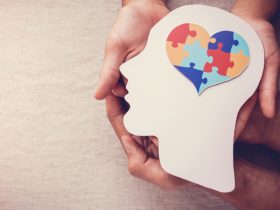Erectile dysfunction (ED) is not just a physical condition but a complex interplay of physiological and psychological factors. Among the various contributors to ED, hormonal imbalances play a significant role in affecting a man’s ability to achieve and maintain an erection. The knowledge of this link is crucial for effective treatment, as addressing hormonal irregularities improves erectile function and overall well-being.
The male body is a complex system regulated by various hormones, including testosterone, estrogen, luteinising hormone (LH), and follicle-stimulating hormone (FSH). These hormones work in synergy, influencing not only sexual function but also metabolism, mood, bone health, and cognitive function. When this delicate balance is disturbed, it leads to a range of health issues, with ED being one of the most common and concerning symptoms.
Impact of hormonal imbalances on erectural car function
When hormonal imbalances occur, the intricate web of physiological processes required for erectile function is disrupted. This disruption can manifest in various ways, depending on the specific hormones involved and the underlying causes.
- Testosterone deficiency- Hypogonadism, commonly known as low testosterone, is a condition that leads to a range of symptoms, including ED. Insufficient testosterone levels result in reduced libido, decreased energy levels, and diminished erectile function. This is because testosterone plays a critical role in promoting blood flow to the penis and maintaining the health of the smooth muscle tissue and blood vessels involved in erections.
- Estrogen dominance- While oestrogen is typically associated with female physiology, men also produce small amounts of this hormone. However, when estragon levels become disproportionately higher relative to testosterone, it contributes to ED. This imbalance can lead to increased body fat, reduced muscle mass, and impaired erectile function.
- LH and FSH dysregulation- The pituitary gland produces luteinizing and follicle-stimulating hormones, which play a vital role in regulating testosterone production. Abnormal levels of these hormones indicate underlying issues with the testes or pituitary gland, leading to testosterone deficiencies and subsequent ED.
- Cortisol and stress- Chronic stress disrupts the body’s hormonal balance, leading to elevated cortisol levels, often called the “stress hormone.” While it plays a vital role in the body’s acute stress response, prolonged elevation has detrimental effects on various systems, including sexual function. High cortisol levels interfere with testosterone production and contribute to ED.

Treating ED- Hormonal imbalances
Effective treatment for ED often involves addressing the underlying hormonal imbalances. At the ED Clinic, patients access comprehensive care that targets these irregularities, improving erectile function and overall health.
- Testosterone replacement therapy (TRT)- TRT is a standard treatment for hypogonadism, involving the administration of testosterone to restore optimal levels. This can be delivered through injections, pellets, patches, gels, or oral tablets. TRT can improve sexual function, increase libido, and enhance overall well-being.
- Estrogen management- When estrogenic dominance is a factor, treatments may focus on reducing estrogenic levels or blocking estrogenic receptors. This can be achieved through medications or lifestyle interventions, such as dietary modifications and physical activity.
- Pituitary support- In LH and FSH irregularities cases, treatments may target the pituitary gland to stimulate hormone production. This can include medications or, in some cases, surgical interventions.
It is essential to recognise that ED is a highly individualised condition, and the underlying causes vary from person to person. As such, effective treatment requires a personalised approach that addresses the specific hormonal imbalances present in each patient. At ED Clinic Riverside, a comprehensive assessment is conducted to identify the unique contributors to a patient’s ED, ensuring tailored treatment plans for optimal results.






